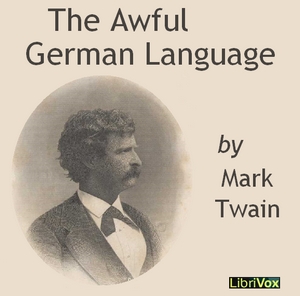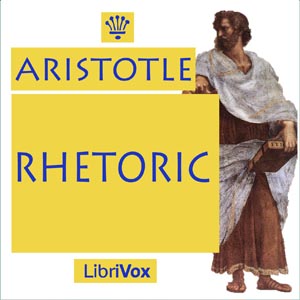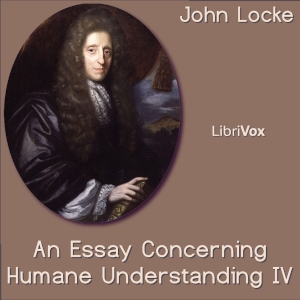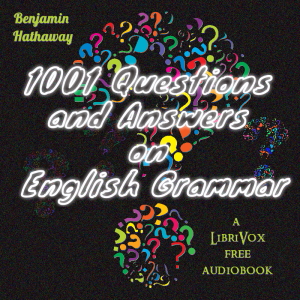Elizabeth Gurley Flynn was a leading American socialist and feminist. Her book "Sabotage, the conscious withdrawal of the workers' industrial efficiency" was written to explain the utility and legality of sabotage. (Summary by Enko)
16 episodes
Formed during World War II, the United States Office of Strategic Services (OSS), was organized for special operations and intelligence gathering
and analysis. Included in its mission was the implementation of, and training of foreign forces in, propaganda, espionage, subversion, and sabotage. After the war, OSS functions were transferred to the newly formed Central Intelligence Agency (CIA).
This "Simple Sabotage Field Manual" was used by OSS agents in training "citizen-saboteurs" in methods for inciting and executing simple sabotage to thwart industry and other vital functions in Axis-occupied areas.
(Summary by James Christopher)
2 episodes

English Synonyms and Antonyms is basically a vocabulary builder that students might use as they prepare for entrance or exit exams. Each entry gives a list of synonyms, followed by a paragraph that briefly explains or exemplifies the subtle distinctions between the listed words. The entries sometimes close with a few words on the prepositions that follow selected synonyms, but more often with a list of antonyms.
By "synonyms" we usually understand words that coincide or nearly coincide in some part of their meaning, and may hence within certain limits be used interchangeably, while outside of those limits they may differ very greatly in meaning and use. It is the office of a work on synonyms to point out these correspondences and differences, that language may have the flexibility that comes from freedom of selection within the common limits, with the perspicuity and precision that result from exact choice of the fittest words to express each shade of meaning outside of the common limits. (Summary by DSayers and the author from the entry "Synonymous")
68 episodes
Lilli Lehmann, born Elisabeth Maria Lehmann, was a German operatic soprano of phenomenal versatility. She was also a voice teacher.She wrote: "Every serious artist has a sincere desire to help others reach the goal—the goal toward which all singers are striving: to sing well and beautifully." This is the 1915 second (expanded) edition of her book, and the accompanying online book scan includes many illustrations and diagrams, both physiological and musical, which the listener will find useful.Much of Lilli Lehmann's advice is complex and demanding - the standards which she set for herself were beyond the highest aspirations of most professional singers. However, there is still much in this book that is enlightening to all those who are interested in using their voice to best advantage, both in song and the spoken word. (Summary by Ruth Golding and Wikipedia)
22 episodes
The Rhetoric was developed by Aristotle during two periods when he was in Athens, the first between 367 to 347 BCE (when he was seconded to Plato in the Academy), and the second between 335 to 322 BCE (when he was running his own school, the Lyceum). The Rhetoric consists of three books. Book I offers a general overview, presenting the purposes of rhetoric and a working definition; it also offers a detailed discussion of the major contexts and types of rhetoric. Book II discusses in detail the three means of persuasion that an orator must rely on: those grounded in credibility (ethos), in the emotions and psychology of the audience (pathos), and in patterns of reasoning (logos). Book III introduces the elements of style (word choice, metaphor, and sentence structure) and arrangement (organization). Some attention is paid to delivery, but generally the reader is referred to the Poetics for more information in that area. (Summary by Wikipedia)
9 episodes

Aristotle's On Interpretation (Greek Περὶ Ἑρμηνείας or Peri Hermeneias) or De Interpretatione (the Latin title) is the second of Aristotle's six texts on logic which are collectively known as the Organon. On Interpretation is one of the earliest surviving philosophical works in the Western tradition to deal with the relationship between language and logic in a comprehensive, explicit, and formal way. The work begins by analyzing simple categoric propositions, and draws a series of basic conclusions on the routine issues of classifying and defining basic linguistic forms, such as simple terms and propositions, nouns and verbs, negation, the quantity of simple propositions (primitive roots of the quantifiers in modern symbolic logic), investigations on the excluded middle (what to Aristotle isn't applicable to future tense propositions — the Problem of future contingents), and on modal propositions. The first five chapters deal with the terms that form propositions. Chapters 6 and 7 deal with the relationship between affirmative, negative, universal and particular propositions. These relationships are the basis of the well-known Square of opposition. The distinction between universal and particular propositions is the basis of modern quantification theory. The last three chapters deal with modalities. Chapter 9 is famous for the discussion of the sea-battle. (If it is true that there will be a sea-battle tomorrow, then it is true today that there will be a sea-battle. Thus a sea-battle is apparently unavoidable, and thus necessary). (Adapted from Wikipedia)
2 episodes

This long essay is a work of mock philology, one of several appendices to Twain’s travel novel, A Tramp Abroad. In it, Twain explains, complains about, and shows how one might improve upon various aspects of the (awful) German language. His examples of precisely how the German language is awful include the famed “separable verb” – which allows one to put the first part of a given verb at the beginning – and its second part at the end – of a given clause or sentence (which may, indeed, be very long). He also makes fun of the extreme length of certain compound nouns (which are created by tacking two – or more – words together, without using hyphens to clarify where one ends and the next begins), as well as the many noun and verb forms one must master (memorize) in order to use German cases properly.
As the essay progresses, Twain includes a few hilarious passages that are partly or mostly in (his own, awful) German. Nevertheless, the work is easily understandable even by people who don’t know any German at all.
(In the novel, A Tramp Abroad, Twain details his journey with his friend, Harris, through Germany, the Alps, and Italy, where he encounters various ridiculous situations. Here, much of the humor lies in his silly, often over-stated characterization of the circumstances as quickly grasped and easily explained by such a seasoned tourist as himself, while he also make plain throughout the profoundly strange nature of many of his experiences, and the various pitfalls he and Harris run into as they try to navigate their unfamiliar terrain.) (Introduction by Kirsten Wever)
8 episodes

The handbook does an outstanding job of explaining the application of management and learning psychology for the general educator/manager with detailed guidance for those studying to become Certificated Flight Instructors. Study of the handbook should include the PDF from the FAA, which has excellent graphics. There are several excellent Handbooks at http://www.faa.gov/regulations_policies/handbooks_manuals/ For those who wish to view the source online in a format other than .pdf Internet Archive has some choices like Kindle and Epub available at https://archive.org/details/Aviation_Instructors_Handbook (Summary by Norman Elfer)
from the preface: Designed for ground instructors, flight instructors, and aviation maintenance instructors, the Aviation Instructor’s Handbook was developed by the Flight Standards Service, Airman Testing Standards Branch, in cooperation with aviation educators and industry to help beginning instructors understand and apply the fundamentals of instruction. This handbook provides aviation instructors with up-to-date information on learning and teaching, and how to relate this information to the task of teaching aeronautical knowledge and skills to students. Experienced aviation instructors will also find the updated information useful for improving their effectiveness in training activities.
19 episodes
This audiobook is volume 2 from the Airplane Flying Handbook FAA-H-8083-3A. This volume covers chapters 11 to 15, on transitions to complex, multiengine, tailwheel, turboprop, and jet aircraft. Study of the handbook should include the PDF from the FAA, which is available at http://www.faa.gov/regulations_policies/handbooks_manuals/ . From the preface: "The Airplane Flying Handbook is designed as a technical manual to introduce basic pilot skills and knowledge that are essential for piloting airplanes. It provides information on transition to other airplanes and the operation of various airplane systems. It is developed by the Flight Standards Service, Airman Testing Standards Branch, in cooperation with various aviation educators and industry." Chapters 1-10 are recorded in Volume 1 and Chapter 16, Emergency Procedures, is Volume 3. - Summary by Norman Elfer
15 episodes
Maria Montessori saw that children gained a sense of satisfaction through doing work of their own choosing, and that the role of the adult was to allow this natural ability of the child to flourish through careful design of the environment, and the development of freedom within a positive structure. Through examples of her observations Montessori details the reasoning behind her methods. This book is translated from its original in Italian. - Summary by Grace En-Tien Chang
17 episodes
This collection of useful information on "Common Things" is put in the interesting form of "Why and Because," and comprehends a familiar explanation of many subjects which occupy a large space in the philosophy of Nature, relating to air, animals, atmosphere, caloric, chemistry, ventilation, materia medica, meteorology, acoustics, electricity, light, zoölogy, etc. - Summary by Anonymous
71 episodes
Enquire Within Upon Everything was a book of how to do things in domestic life It was first published in 1856 by Houlston and Sons of Paternoster Square in London. Robert Kemp Philp. It was then continuously reprinted in many new and updated editions as additional information and articles were added. The book was created with the intention of providing encyclopedic information on topics as diverse as etiquette, parlour games, cake recipes, laundry tips, holiday preparation and first aid. - Summary by Michele Eaton
83 episodes
"We are to study the mind and its education; but how? It is easy to understand how we may investigate the great world of material things about us; for we can see it, touch it, weigh it, or measure it. But how are we to discover the nature of the mind, or come to know the processes by which consciousness works? For mind is intangible; we cannot see it, feel it, taste it, or handle it. Mind belongs not to the realm of matter which is known to the senses, but to the realm of spirit, which the senses can never grasp. And yet the mind can be known and studied as truly and as scientifically as can the world of matter." This book of over a hundred years is full of useful and practical information. The author's elegant use of referencing poetry and literature in forming mental images as a way of educating our creative minds makes for a most pleasurable read. - Summary by Mike Justice and from the text
19 episodes
Elements of Geology is one in a Series of First Books of Natural History Prepared for the Use of Schools and Colleges. This succinct little textbook from 1846 presents an introduction to geology. The information, albeit not current, is still interesting and of use as a general overview of the subject as well as interesting look into the period. Please note that some of the information has changed considerably since this time. The author was a surgeon in the U.S. Navy and president of the Academy of Natural Sciences. - Summary by Amy Gramour
22 episodes
This is the first volume in the Home Education Series detailing Charlotte Mason's method of education. This volume is subtitled: The Education of Children under Nine Years of Age. The series is used today by many homeschoolers around the globe and is considered a classic reference by the founder of the homeschooling movement. Volume 1 of 6. - Summary by rachelrw
66 episodes
A collection of essays relating to the efforts to reorganise American schools to provide a more efficient and effective education system. Also includes discussions on adjustment rooms for students with special educational needs. Edited by Lewis Terman with co-contributors including Virgil E. Dickson, A. H. Sutherland, Raymond H. Franzen, C. R. Tupper, Grace Fernald. (summary by niobium)
7 episodes
This is a recording of a booklet given to new naturalized American citizens, it contains an explanation of fundamental documents, symbols and anthems of the United States. "Today you are a citizen of the United States of America— becoming “a peer of kings” as President Calvin Coolidge once said. This occasion is a defining moment that should not soon be forgotten, for it marks the beginning of a new era in your lifetime as a U.S. citizen. Naturalized citizens are an important part of our great democracy, bringing a wealth of talent, ability, and character to this Nation. Your
fellow citizens recognize the sacrifices you have made to reach this milestone and with open arms we welcome you. The United States offers
an abundance of freedom and opportunity for all its citizens and we wish you all the best along the way."
8 episodes
This text is a reprint of the first English-language book on rhetoric, including an introduction and notes from Frederic Ives Carpenter of the University of Chicago. Cox's original brief treatise covers various themes and topics related to oratory and argument. Carpenter's introductory material adds context and analysis. (Summary by Amelia Chesley)
10 episodes
The fifth of the Series of First Books of Natural History, embraces that branch of our subject which treats of the Mollusca, or soft animals, and consequently, includes the Elements of Conchology. In the beauty and singularity of their forms, the variety and brilliancy of their colors, shells only yield to flowers…. Limited as this little volume is, it may prove a key to stores of information, even more interesting to many than the numerous fictions of the day. “Truth is stranger than fiction,” has been often said; and the beautiful truths brought to us by a study of animal life, in its various forms, are certainly more admirable and wonderful than any fiction of man’s creation. - Summary by William Ruschenberger
10 episodes

John Locke wrote four essays on human (or humane) understanding. Here are a few quotes from the book: "I see no reason to believe, that the soul thinks before the senses have furnished it with ideas to think on. The dreams of sleeping men are, as I take it, all made up of the waking man's ideas, though for the most part oddly put together. Can the soul think, and not the man, or a man think, and not be conscious of it? Suppose the soul of Castor separated, during his sleep, from his body, to think apart. Let us suppose too, that it chooses for its scene of thinking the body of another man, v. g. Pollux, who is sleeping without a soul. Nobody can imagine that his soul can think, or move a body at Oxford, whilst he is at London. The question is, whether if the same substance which thinks, be changed, it can be the same person; or, remaining the same, it can be different persons? Whiteness and coldness are no more in snow than pain is."John Locke wrote four essays on human (or humane) understanding. The first and second have been recorded into LibriVox. This recording is a repetition of the second of Locke's Essays. All of his essays were, and are, very influential. Edward Stillingfleet 1635-1699 (Bishop of Worcester) wrote a Critique of Locke’s ideas and many letters to him. Locke’s Essays inspired Gottfried Leibniz (1646-1716) to write his New Essays Concerning Human Understanding and Victor Cousin analyzed all four books in his 1834 Elements of Psychology. - Summary by Craig Campbell
32 episodes
Un ouvrage passionnant sur la Littérature, comment lire et aborder différents textes, romans, philosophiques, poétiques, pièces de théâtre, auteurs connus, plus complexes, etc... Une belle approche du "comment lire", un art qui est aussi une passion pour tous les amoureux de la langue. Une réflexion littéraire très enrichissante.
En Additif, un article très intéressant, sur l’orthographe, ... vaste débat..., et traité avec vivacité, érudition et grand talent par Émile Faguet.
Et, pour clore, un second et dernier additif : un aspect intéressant avec le Portrait littéraire, Nietzsche et les femmes. - Summary by Christiane Jehanne
13 episodes
This is the fourth book of John Locke's Essay Concerning Human Understanding. His book deals with knowledge and probability. He asks how far knowledge can go, if there are universal propositions, what are judgment and probability and deals with faith, reason and enthusiasm. - Summary by Soupy
23 episodes
Volume two of the Home Education Series by Charlotte Mason talks about parents and children. Charlotte breaks down a couple of different topics about home education, like the family, the parent's role as the teacher, and much more. - Summary by Elijah Fisher
27 episodes
A book for students interested in finding out how many things about the English language have changed, and how many have weathered the test of time. - Summary by jasonb
26 episodes























